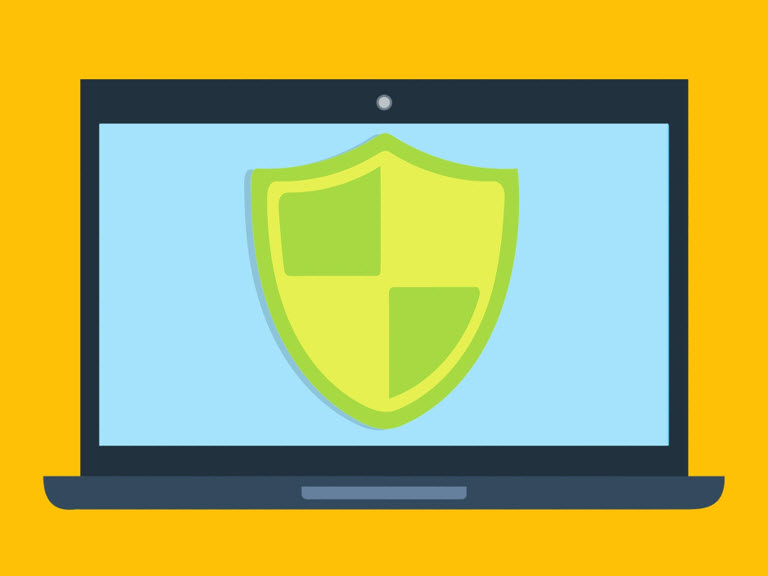PCs and smartphones have been integral to almost everyone’s lives. From the workplace to home or even while travelling, computers go everywhere with us. With the excessive usage of computers for almost any and everything, they have now become more and more vulnerable to cybercriminals and hackers.
The issue that lies at the center of bad internet security is that most people either do not have the time or are just uninterested in cybersecurity. It does not have to be this way, understanding the basics of cybersecurity and implementing them can be way easier than you think. Apart from implementing good cybersecurity practices, installing a trusted internet security suite that protects your PC against all online threats is imperative too. Cybersecurity may seem complicated or confusing as a tech amateur but the first step towards maintaining cyber-secure habits can be as simple as getting a good internet security tool.

Moving on, to really get started with good cyber-secure practices, here are some things you can follow that tech-buffs do to keep their computers safe:
1. Not staying connected to the internet all time
Most tech buffs avoid connecting their PCs to the net all the time even if their computer keeps running for long periods of time. It is considered good to switch your internet router off every now and then. Hackers have a special love for “always-on” connections that they tend to exploit. A more sporadic internet connection makes you less attractive to hackers which keeps your PC comparatively safe.
2. Making sure their router and computer have a good firewall
The importance of using a good firewall is aplenty. A decent firewall monitors incoming and outgoing data as well as information making sure to protect your system from unauthorized access. Almost every tech-buff uses a good firewall on their PC as well as their router to ensure utmost safety. Nowadays most computers have an integrated firewall built into the OS, however, having a little knowledge and staying updated about its version and kind will be more beneficial for you.
3. Installing a good Cybersecurity Software
Tech-buff or not, getting a good internet security tool is a must for everyone. It is the first step towards securing your PC from unwanted threats, malware, and ransomware. Many people claim that anti-viruses and protection software slow your PC, well, that is one big myth if you use the right protection. It is of utmost importance to trust leading anti-ransomware protection that not just works efficiently but also has the lowest impact on your PC’s performance.
Choosing sophisticated software that protects your devices against all kinds of malware without compromising speed is the way to go while thinking about cybersecurity.
4. Enabling two-factor authentication
More the protection layers better the computer’s security, this is like rule number 1 for every tech buff. Two-factor authentication is a very techie’s BFF as it ensures that no one except them can access the system. Apart from a strong password, it makes sure that another protection layer like a code or a text message, or a security question is answered before you can actually log in. Tech buffs never take 2FA for granted and you should do the same. It may take a little extra time, but it is totally worth the time.
5. Never Trust Public Wi-Fi
Sipping on a nice cup of coffee while surfing the net at a public cafe may sound very fancy but that is a huge NO-NO when it comes to cybersecurity. A lot of data breaches and malicious activities occur via public WiFi’s and using a public connection is something that no tech buff will ever do. It is common knowledge that hackers have their eyes on public WiFi’s all the time and use it as an effective means to steal data.
6. Keep Difficult Passwords
An easy password will always be easily compromised. Most people use passwords like abcd123 or 12345678 which makes hacking accounts a piece of cake for cybercriminals. A tech buff will never keep simple passwords and will always use different passwords for different sites. Try keeping passwords that are not common knowledge and something that is hard to guess.
7. Never open suspicious emails
Suspicious emails talking about a lottery you won or an instant job paying an amazing sum are just phishing acts that try to lure you into a web of malicious activities. You may be one click away from getting your account, PC, and financial details hacked. Every tech buff stays a mile away from these malicious e-mails that are merely phishing scams. Researchers in cyber threat intelligence also talk about how data can be comprised very easily via these malicious links present in mails. These emails are in fact sent by hackers and aim to access your personal information.
Conclusion
Apart from these things, there are tons of other basic things that you can do to keep your PC and information safe. Things, as simple as covering your webcam with a translucent tape count as good cybersecurity practices. Keeping your PC secure and safe in today’s world is equivalent to keeping your home safe. So, it’s better to take all the precautions rather than regret it later.
